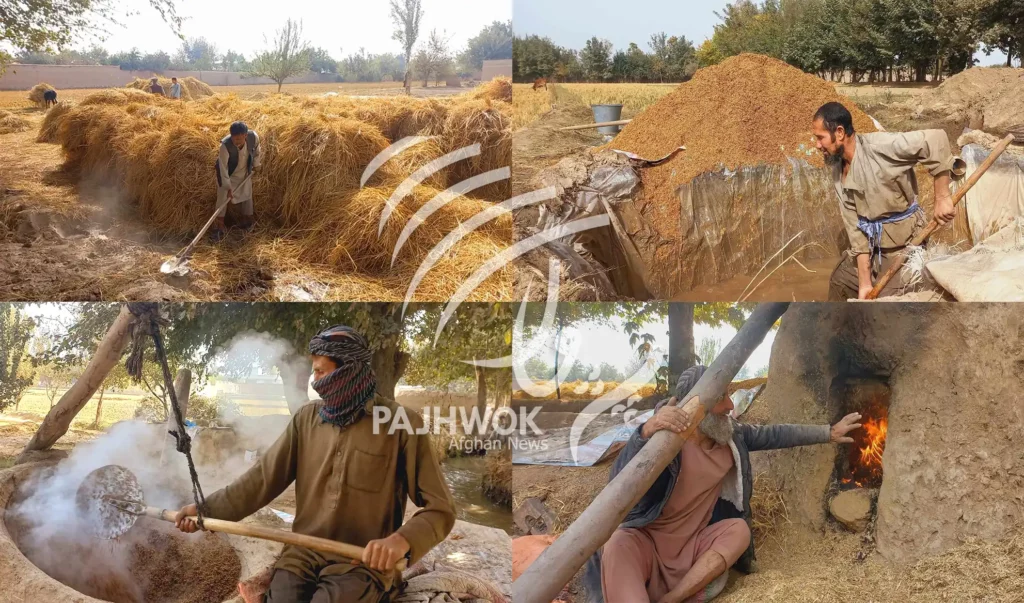TALOQAN (Pajhwok): Farmers in northern Takhar province are unhappy with this year’s rice yield despite many efforts.
Rice is one of important crops in Takhar.
Pajhwok Afghan News reporter talked to several farmers on how and when the rice is cultivated and what steps they need to take?
Mohammad Zarif, a farmer who cultivates rice every year, said: “In June, first the rice is planted and about 40 days, it turns into seedlings. In the month of July, the process of planting seedlings begins and last for four to five months, 24-hour efforts are made so that the paddy does not remain without water, and during this period, it is irrigated until it reaches maturity in the month of October.
He said then the harvesting process begins and after the harvest, farmers start separating it from the paddy by threshing, the paddy is thrown into special wells again after two to three weeks and is separated and goes to the boiler.
Another farmer Khodadad, who has cultivated rice on more than two acres of land, says rice cultivation starts in June and is harvested in October.
He added lack of agricultural machines to cultivate and harvest rice and no cooperation of the Agriculture Department like distributing chemical fertilizers to farmers were their major concerns.
Abdul Qadir, another farmer, said white rice and red rice were mostly cultivated in Takhar and have satisfactory yields.
Besides lack of cooperation from the government, he blamed monsoon rains for this year’s reduced yields compared to previous years.
Meanwhile, Qiamuddin Ahmadi, an agricultural affairs expert in Takhar, told Pajhwok that rice yield dramatically decreased in Takhar this year due to lack of government’s attention, educational seminars on how to grow rice and more attention to mechanization of wheat.
Abdul Aala Radmard, director of agriculture promotion and development, said that last year rice was cultivated on 46,000 hectares of land, but this year due to lack of water, its cultivation decreased to 41,000 hectares.
According to him, Takhar province produced 124,000 tons of rice last year, but this year the yeield decreased to 100,000 tons.
The price of domestically produced rice increased after the government halted import of rice from regional countries. The price of 7-kilogram of rice in Takhar hovered between 350afs and 700afs depending on taste and quality.
Radmard said the local government had tried to address farmers’ concerns.
sa/ma








GET IN TOUCH
NEWSLETTER
SUGGEST A STORY
PAJHWOK MOBILE APP